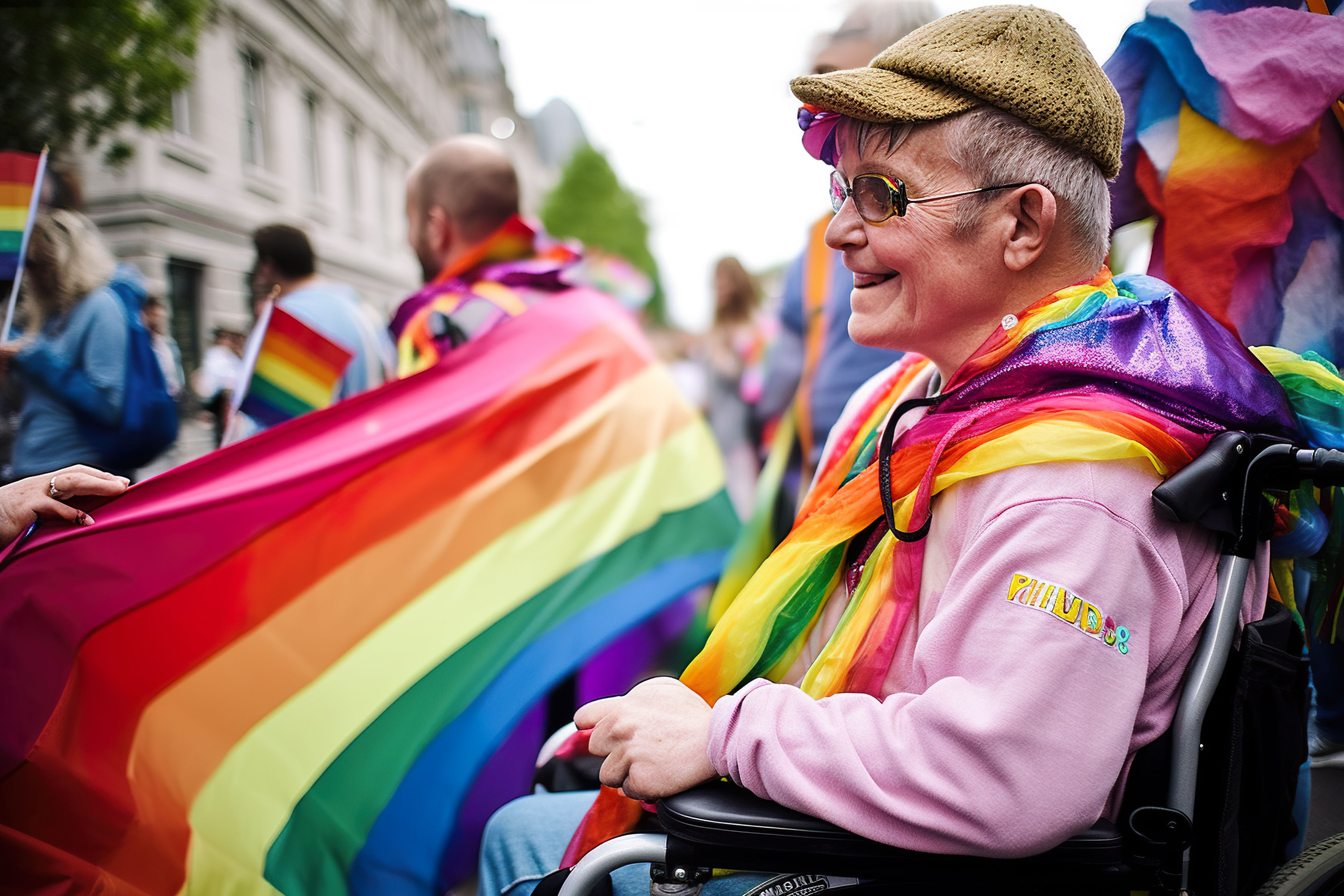The Problem with Pride

While we should all be celebrating Pride Month; it can bring up challenging questions about disabled people’s intersectional ‘identities’.
By Able Magazine editor, Tom Jamison
The LGBTQ+ community has increasingly managed to have its voice heard and has changed things for the better – not just, in fact, for LGBTQ+ people, but for the entire diversity agenda. Rightly, people from other protected characteristics who have experienced discrimination as a result of their identities, have reflected on their success and have also taken a similar path towards full civil rights and the hoped for end to discrimination.
The journey
It's strange to relate that despite there being an estimated 12 – 18 million disabled people in the UK, that, according to research published at the end of 2020 by The Valuable 500, only 3% of articles on diversity reference disability – a figure that had risen by only 1% in the preceding five years. It seems then, that the journey towards equality for disabled people, is much slower.
Voice is important, and all people, irrespective of their identity, deserve to be heard; so again, why has there never been a ‘Me Too’ style movement along the lines of say, ‘Disabled Lives Matter’? Isn’t it timely in the aftermath of a pandemic that saw 60% of Covid fatalities being disabled people?
There are arguably two reasons for a lack of disability confidence in this context. The first is that disabled people can experience a lack of social mobility drivers such as duration and quality of education. The second is that they may not see disability as their primary identity. Such a large community will always include a large number of people with an intersectional identity.
Identity
It is thought that around two thirds of disabled people acquire disability during their life, rather than have a congenital (from birth) condition. This may explain why, for lots of people, disability is not regarded as their (primary) identity.
The other important point is that the term ‘pride’ is challenging – not unlike ‘disability’. Disabled people often comment that the words ‘disabled’ and ‘disability’ have a negative connotation – such as discombobulate or disgrace and so on. The word pride doesn’t really fit in with many disabled people’s ambitions to escape the full force of their disability, through innovation, adaptation and above all, positive attitude. It’s a tricky business since few, if any, disabled people want to be defined by their disability.
Perhaps Pride can also be adapted in the case of disabled people, who all have intersectional identities, since all disabled people are also covered by one or more of the other protected characteristics: age, race, religion, and of course, LGBTQ+.
Disabled people who also identify as LGBTQ+ should certainly be proud – but twice over!
Visit: www.ablemagazine.co.uk

